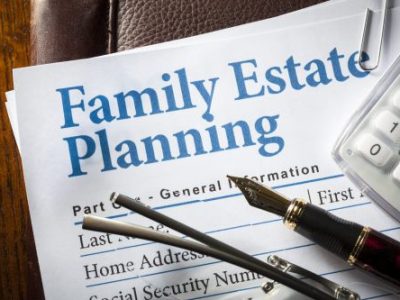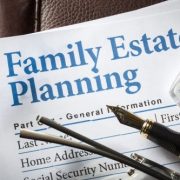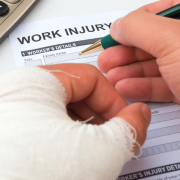It can be tough to know if a loved one is experiencing abuse or neglect in a nursing home. Sometimes the signs are obvious, but other times they’re more subtle. Paying close attention to your loved one and their surroundings is key.
Physical Indicators Of Mistreatment
Physical signs of abuse or neglect are often the most apparent. These can include:
- Unexplained bruises, cuts, or welts, especially in patterns that suggest rough handling.
- Broken bones or dislocations that don’t have a clear explanation.
- Burns, whether from cigarettes, hot liquids, or other sources.
- Signs of malnutrition or dehydration, such as weight loss or dry mouth.
- Poor hygiene, like unwashed clothes or body odor, which can point to neglect.
These physical markers are often indicators of underlying mistreatment, and it’s important to investigate them further. You can find more information on common injuries at nursing home abuse and neglect.
Emotional And Behavioral Changes
Abuse doesn’t always leave physical marks. Changes in a resident’s behavior or emotional state can also signal a problem. Look out for:
- Increased fear, anxiety, or agitation, especially around certain staff members.
- Withdrawal from social activities or a sudden loss of interest in things they once enjoyed.
- Depression, confusion, or a general sense of hopelessness.
- Uncharacteristic aggression or combativeness.
- Reluctance to speak in front of caregivers or a tendency to be secretive.
These shifts in personality or mood warrant a closer look.
Unexplained Injuries And Falls
Falls are a concern in any care facility, but when they happen frequently or result in serious injuries without a clear cause, it’s a red flag. It’s important to ask questions about:
- The circumstances surrounding any falls.
- Whether the resident was properly supervised or if mobility aids were being used correctly.
- The nature of any injuries sustained during a fall, such as fractures or head trauma.
If the explanations don’t seem to add up, or if there’s a pattern of unexplained injuries, it’s time to dig deeper into the quality of care being provided.
Understanding Different Forms Of Nursing Home Abuse
Nursing home abuse isn’t a single issue; it’s a spectrum of harmful actions that can affect residents. Recognizing these different types is the first step toward prevention and intervention. It’s important to be aware of the various ways mistreatment can occur.
Physical Abuse And Neglect
Physical abuse involves the intentional infliction of pain or injury. This can include hitting, slapping, pushing, or improperly restraining a resident. Neglect, on the other hand, is the failure to provide necessary care. This might look like:
- Not changing soiled bedding or clothing promptly.
- Failing to provide adequate food or water, leading to dehydration or malnutrition.
- Not assisting with personal hygiene, such as bathing or oral care.
Both physical abuse and neglect can lead to serious health problems and should never be tolerated. If you notice unexplained bruises, cuts, or other injuries, it’s a red flag. You can find more information about the signs of abuse on nursing home abuse resources.
Emotional And Psychological Abuse
This form of abuse targets a resident’s emotional well-being. It can involve verbal or non-verbal actions that cause distress, fear, or anxiety. Examples include:
- Yelling at or threatening residents.
- Humiliating or demeaning them.
- Isolating them from friends and family.
Emotional abuse might not leave visible marks, but its impact can be profound. Changes in behavior, such as increased withdrawal, agitation, or a sudden fear of certain staff members, can indicate this type of mistreatment.
Financial Exploitation And Scams
Financial exploitation occurs when someone improperly uses a resident’s money or belongings. This is a particularly insidious form of abuse, as it often targets vulnerable individuals who may not fully understand their finances. Signs of financial exploitation can include:
- Unexplained withdrawals from bank accounts.
- Changes to wills or financial documents.
- Missing personal items or valuables.
It’s vital to monitor financial statements and be aware of any unusual activity. Protecting a loved one’s financial security is as important as protecting their physical safety.
Preventing Nursing Home Abuse Before It Occurs
Choosing the right nursing home is a big step, and taking the time to do it right can make a world of difference. It’s about finding a place where your loved one will be safe and well-cared for. This means looking beyond the brochures and really digging into what each facility offers and how they operate.
Thoroughly Vetting Potential Facilities
When you’re looking at different nursing homes, there are several things to check. Don’t just rely on what they tell you; try to see things for yourself. Ask for a tour, and pay attention to the cleanliness of the place, the general mood of the residents, and how the staff interacts with them. It’s also a good idea to check the facility’s record with state licensing agencies. You can often find this information online. A facility with a history of violations might be a red flag. Look into staff turnover rates too; high turnover can sometimes indicate underlying problems with management or working conditions, which could affect resident care. Asking current residents or their families about their experiences can also provide honest insights.
Establishing Open Communication Channels
Once your loved one is in a nursing home, keeping the lines of communication open is key. This means talking regularly with your family member about their day, their feelings, and any concerns they might have. It’s also important to build a relationship with the nursing home staff, including nurses, aides, and administrators. Knowing who to talk to if something comes up makes it easier to address issues quickly. Don’t hesitate to ask questions about your loved one’s care plan, medications, or daily routine. Understanding these details helps you spot anything that seems out of the ordinary. A good facility will welcome your questions and involvement.
Regularly Visiting And Monitoring Care
Visiting your loved one often is one of the most effective ways to monitor the quality of care they receive. Try to make these visits at different times of the day, including during meals or evenings, to get a fuller picture of the facility’s operations. These unannounced visits can help you observe the staff’s attentiveness and the residents’ overall well-being. Observe staff interactions and how residents are treated when they think no one is watching. Keep notes on anything that seems concerning, such as unexplained bruises, changes in your loved one’s behavior, or a general lack of cleanliness. This consistent oversight acts as a deterrent and helps you catch potential problems early on.
Your Role In Ensuring Quality Care
Families play a significant part in making sure their relatives receive good care in nursing homes. It’s not just about dropping them off and hoping for the best. Active involvement makes a real difference. Staying involved helps catch problems early and promotes a better living environment.
Advocating For Your Loved One’s Needs
Being an advocate means speaking up for what your family member needs. This could involve talking to the nursing staff about their daily routines, dietary preferences, or medical requirements. Sometimes, a simple request can prevent a misunderstanding or a lapse in care. It’s about making sure their voice is heard, even if they can’t speak for themselves.
Documenting Concerns And Observations
Keeping records is a smart move. Write down any issues you notice, like changes in your loved one’s mood, unexplained marks, or missed appointments. Note the date, time, and who you spoke with about the concern. This documentation can be very helpful if you need to discuss problems with facility management or if a situation escalates. It provides a clear history of what has been observed.
Reporting Suspected Nursing Home Abuse
If you suspect abuse or neglect, it’s important to report it. Most facilities have a process for handling complaints, and you should start there. If you don’t get a satisfactory response, or if the situation is serious, you can contact state or local agencies that oversee nursing homes. There are also organizations dedicated to protecting elder rights that can offer guidance. Don’t hesitate to seek help from these resources.
Legal Recourse For Victims Of Nursing Home Abuse
Understanding Residents’ Rights
Residents in nursing homes have specific rights designed to protect them. These rights are often outlined by federal and state laws. Knowing these rights is the first step in seeking justice if abuse or neglect occurs. For instance, residents have the right to be free from abuse, neglect, and mistreatment. They also have the right to voice grievances without fear of reprisal and to receive adequate and appropriate medical care. Understanding these protections is key to recognizing when they have been violated. It’s important to be aware that facilities are legally obligated to uphold these standards.
Seeking Legal Counsel For Abuse Cases
When abuse or neglect is suspected, consulting with an attorney experienced in nursing home cases is highly recommended. These legal professionals can help assess the situation and explain the available options. They understand the complexities of elder law and the specific regulations governing nursing homes. An attorney can guide families through the process of filing claims and seeking compensation for damages. This might include claims for nursing home negligence or medical malpractice. Finding the right legal help can make a significant difference in achieving a favorable outcome for the victim. You can find resources to help you file claims for negligence.
Navigating The Legal Process After Abuse
The legal process following an accusation of nursing home abuse can be intricate. It typically involves several stages, from initial investigation to potential litigation. Families will need to gather evidence, which may include medical records, witness statements, and facility documentation. The attorney will use this information to build a case. The goal is often to hold the responsible parties accountable and to secure compensation for the harm suffered by the resident. This compensation can help cover medical expenses, pain and suffering, and other related costs. The process requires patience and persistence, but pursuing legal action can be a vital step toward justice and preventing future harm to other residents.












Comments